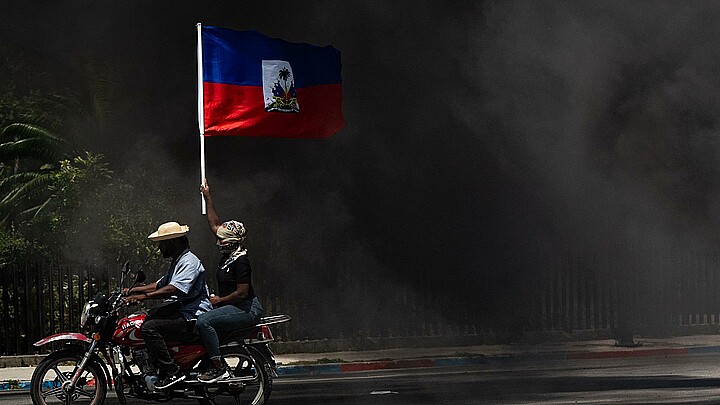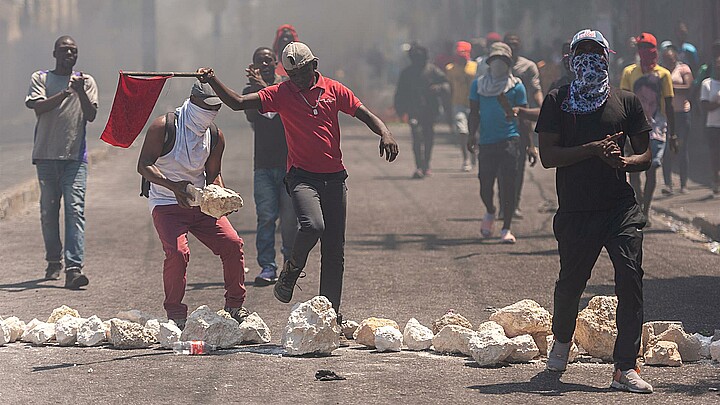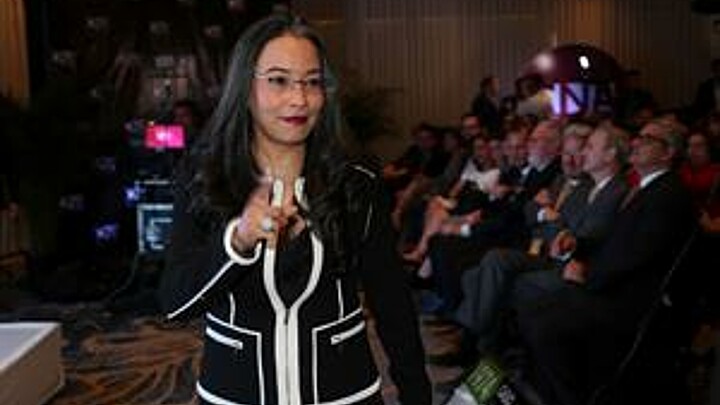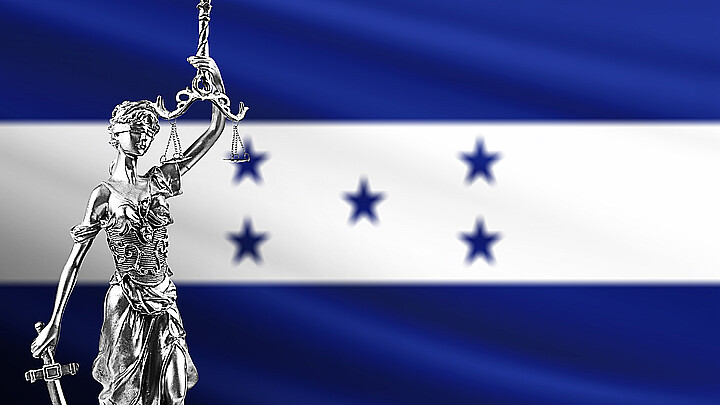Human Rights
Report: Basic rights are under attack as Latin America continues to shift left
On Thursday, Human Rights Watch released its 752-page World Report 2022 warning that “Latin America is facing some of its gravest human rights challenges in decades"
January 13, 2022 4:08pm
Updated: January 13, 2022 4:08pm
It is no secret that left-wing forces have regained ground in Latin America.
From Andres Manuel Lopez Obrador in Mexico down to Gabriel Boric in the region’s southernmost tip, “a new socialist, authoritarian wave” has challenged the individual and economic freedoms of millions of Latin Americans.
But human rights, too, have come under attack.
On Thursday, Human Rights Watch (HRW) released its 752-page World Report 2022 warning that “Latin America is facing some of its gravest human rights challenges in decades.”
“Latin America is experiencing such an alarming reversal of basic freedoms that we now have to defend democratic spaces that we once took for granted,” said Tamara Taraciuk Broner, acting director of Human Rights Watch's America division. “Even democratically elected leaders attacked independent civil society, the free press, and judicial independence. Millions of people were forced to leave their homes and countries, and the economic and social impact of the pandemic has been devastating.”
Countries in dictatorship
In the past year, the Cuban government systematically engaged in abuses against critics of the regime, citizen journalists, artists and countless other individuals who dared to clamor for freedom. Abuses on the island have included arbitrary detention, torture, forced deportation and abuse-ridden criminal prosecutions in response to peaceful anti-government protests.
According to a recent ADN America report, the Cuban regime carried out around 9,700 repressive actions against the civilian population, making 2021 the worst year in the last two decades for human rights on the island.
Out of the 9,705 repression acts, 2,717 were arbitrary detentions and 3,743 were illegal detentions in homes, according to a report by the Cuban Observatory for Human Rights (OCDH) released on January 5.
In Venezuela — where inflation hovers at around 2,000 percent — the hunger brought about by a failed economy has only added to the regime’s many human rights abuses.
As millions of individuals continue to flee to neighboring countries, those who remain struggle to eat as the country continues to suffer from food shortages brought about by the regime’s desperate attempts to fix the broken economy by implementing price controls and seizing farms.
But Venezuelans are unable to speak out against their failed leadership as Nicolas Maduro’s regime has continued to jail opposition voices and presently stands accused of committing crimes against humanity. After the last round of elections, U.S. and European officials denounced the elections in Venezuela as a sham.
In a Nov. 22 statement, Secretary of State Antony Blinken said, “Arbitrary arrests and harassment of political and civil society actors, criminalization of opposition parties’ activities, bans on candidates across the political spectrum, manipulation of voter registration rolls, persistent media censorship, and other authoritarian tactics all but quashed political pluralism and ensured the elections would not reflect the will of the Venezuelan people.”
In November, the International Criminal Court prosecutor opened an investigation shortly after a U.N. fact-finding mission found that judicial authorities had been complicit in many egregious abuses.
But arbitrary imprisonment also means torture for countless Venezuelans. ADN America recently reported on the brutal torture methods employed by the General Directorate of Military Counterintelligence in state detention centers.
The November elections in Nicaragua were also widely condemned as fraudulent.
Since taking office in 2007, the government of President Daniel Ortega has dismantled institutional checks on presidential power and abolished term limits — setting the despot up for a lifetime in power.
The Electoral Council, stacked with the president’s cronies, removed opposition lawmakers in 2016 and barred opposition political parties from participating in the 2021 presidential elections.
According to HRW, between May and October 2021, authorities arbitrarily detained seven presidential candidates and 32 prominent government critics. Prosecutors opened investigations against most on alleged “treason” charges and the Attorney General’s Office filed charges against the detainees in proceedings that lacked basic due process guarantees.
Charges, carrying prison sentences of 15 to 25 years, ranged from money laundering to, most commonly, “conspiracy to undermine national integrity.”
“Most critics have been held incommunicado and subjected to abuses in detention, including daily interrogations, prolonged solitary confinement, and insufficient food. Authorities have barred critics’ lawyers from participating in public hearings, assigning public defenders instead. Despite repeated requests, most lawyers had no access to court documents for months,” the report notes.
Countries with free elections
But not only countries with dictatorial regimes have abused their power and hindered the human rights of its citizens.
In Mexico, President Andrés Manuel López Obrador continued his media attacks on journalists and human rights defenders and continued to dismantle independent government agencies — including the judiciary — in an attempt to consolidate power.
The lack of strong independent institutions has meant that human rights violations — including torture, enforced disappearances, abuses against migrants, extrajudicial killings, gender-based violence, and attacks on independent journalists and human rights defenders — have continued to go unpunished as impunity remains the norm.
In El Salvador, President Nayib Bukele and his legislative allies systematically replaced Supreme Court justices and passed laws to dismiss hundreds of lower-level judges and prosecutors. This move resulted in the new Supreme Court’s ruling that he could run for consecutive re-election, despite a constitutional prohibition.
Bukele has also stood accused of making deals with El Salvador’s bloody gang leaders. Gangs such as MS-13 continue to exercise territorial control over some neighborhoods and extort residents throughout the country.
According to the report, gangs “forcibly recruit children and sexually abuse women, girls, and lesbian, gay, bisexual, and transgender (LGBT) people. Gangs kill, disappear, rape, or displace those who resist.”
According to the Office of the United Nations High Commissioner for Refugees, from 2011 to October 2020, 71,500 people were internally displaced, mostly due to violence perpetuated by gangs and security forces
Other countries including Argentina, Bolivia, Brazil, Chile, Colombia, Ecuador, Guatemala, Honduras and Peru were also named in the report and have, in recent years, stood accused of multiple human rights abuses — often perpetrated by militarizing the judiciary in order to quell opposition or by using security forces to undermine any popular dissent.
But while the report focuses on the last year, what appears interesting is the correlation that can be drawn between the rise in left-wing governments and the deterioration of human freedom in the region.
According to the Cato Institute’s 2021 Economic Freedom of the World report, freedom deteriorated across Latin America between 2008 and 2019.
This is of note because it was around that time that the first wave of Latin America’s left-wing leaders entered office — including Evo Morales in 2006, Michelle Bachelet in 2006, Rafael Correa in 2007, Cristina Kirchner in 2007 and Daniel Ortega in 2007.










